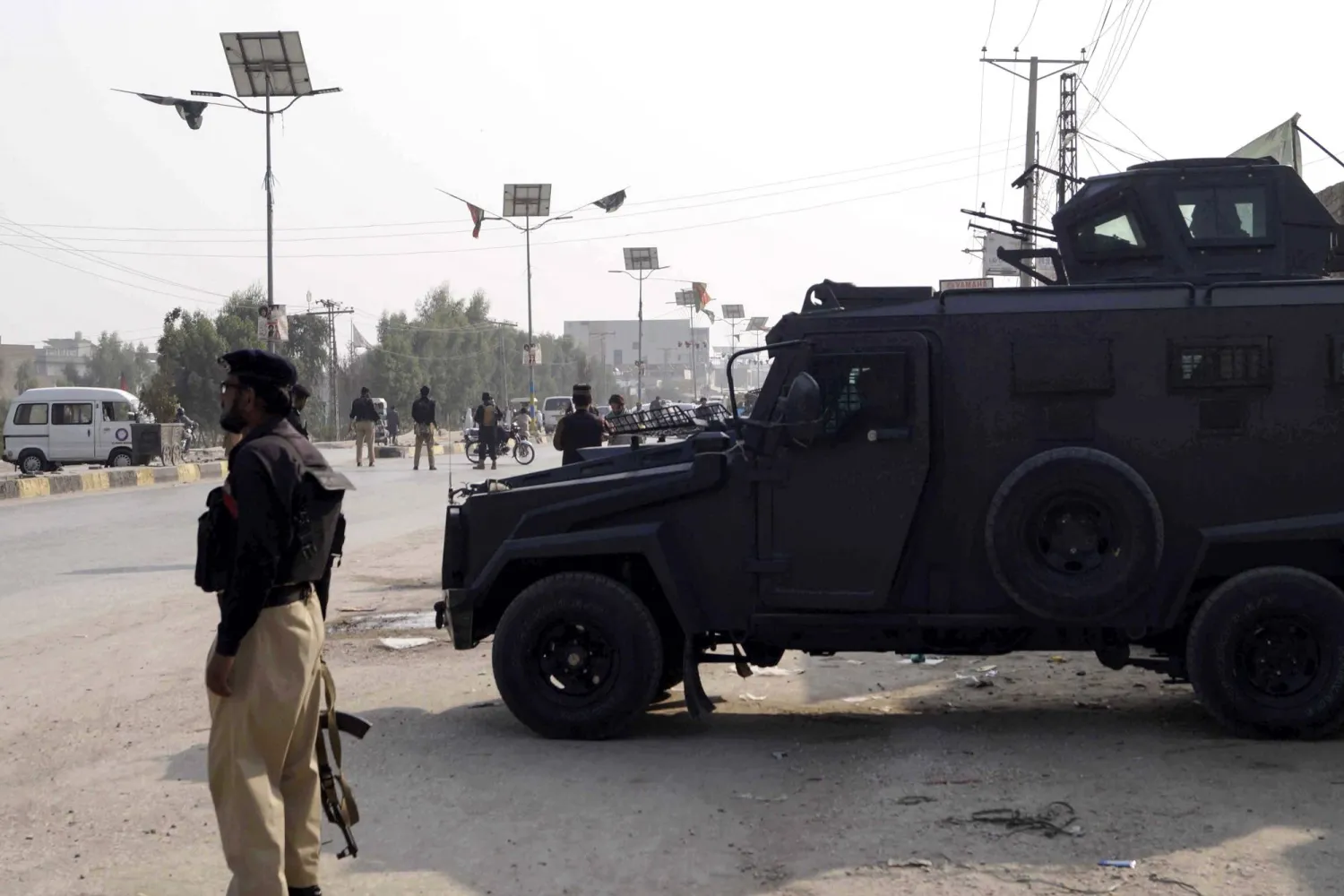Pakistan's capital was put under a security lockdown on Sunday ahead of protests by supporters of jailed former Prime Minister Imran Khan calling for his release.
Highways leading to Islamabad through which supporters of Khan, led by members of his Pakistan Tehreek-e-Insaf (PTI) party, are expected to approach the city and gather near the parliament, have been blocked.
Most major roads of the city have also been blocked by the government with shipping containers and large contingents of police and paramilitary personnel have been deployed in riot gear, while mobile phone services have been suspended.
Gatherings of any sort have been banned under legal provisions, the Islamabad police said in a statement.
Global internet watchdog NetBlocks said on X, formerly known as Twitter, that live metrics showed WhatsApp messaging services had been restricted ahead of the protests.
A key Khan aid, Ali Amin Gandapur, who is the chief minister of Khyber Pakhtunkhwa province and is expected to lead the largest convoy into Islamabad, called on people to gather near the entrance of the city's red zone, known as "D Chowk".
Islamabad's red zone houses the country's parliament building, important government installations, as well as embassies and foreign institutions' offices.
"Khan has called on us to remain there till all our demands are met," he said in a video message on Saturday.
The PTI's demands include the release of all its leaders, including Khan, as well as the resignation of the current government due to what it says was a rigged election this year.
Khan has been in jail since August last year and, since being voted out of power by parliament in 2022, faces a number of charges ranging from corruption to instigation of violence.
He and his party deny all the charges.
"These constant protests are destroying the economy and creating instability ... we want the political leadership to sit together and resolve these matters," Muhammad Asif, 35, a resident of Islamabad said in front of a closed market.
The last protest in Islamabad by PTI in early October turned violent with one policeman killed, dozens of security personnel injured and protesters arrested. Both sides accused the other of instigating the clashes.
Islamabad Locked Down ahead of Protests Seeking ex-PM Imran Khan's Release

Police officers stand guard near their vehicles during a protest by Pakistani Shiite Muslims against an attack on passenger vehicles in Kurram, in Dera Ismail Khan District, Khyber Pakhtunkhwa province, Pakistan, 22 November 2024. EPA/SAOOD REHMAN

Islamabad Locked Down ahead of Protests Seeking ex-PM Imran Khan's Release

Police officers stand guard near their vehicles during a protest by Pakistani Shiite Muslims against an attack on passenger vehicles in Kurram, in Dera Ismail Khan District, Khyber Pakhtunkhwa province, Pakistan, 22 November 2024. EPA/SAOOD REHMAN
لم تشترك بعد
انشئ حساباً خاصاً بك لتحصل على أخبار مخصصة لك ولتتمتع بخاصية حفظ المقالات وتتلقى نشراتنا البريدية المتنوعة







